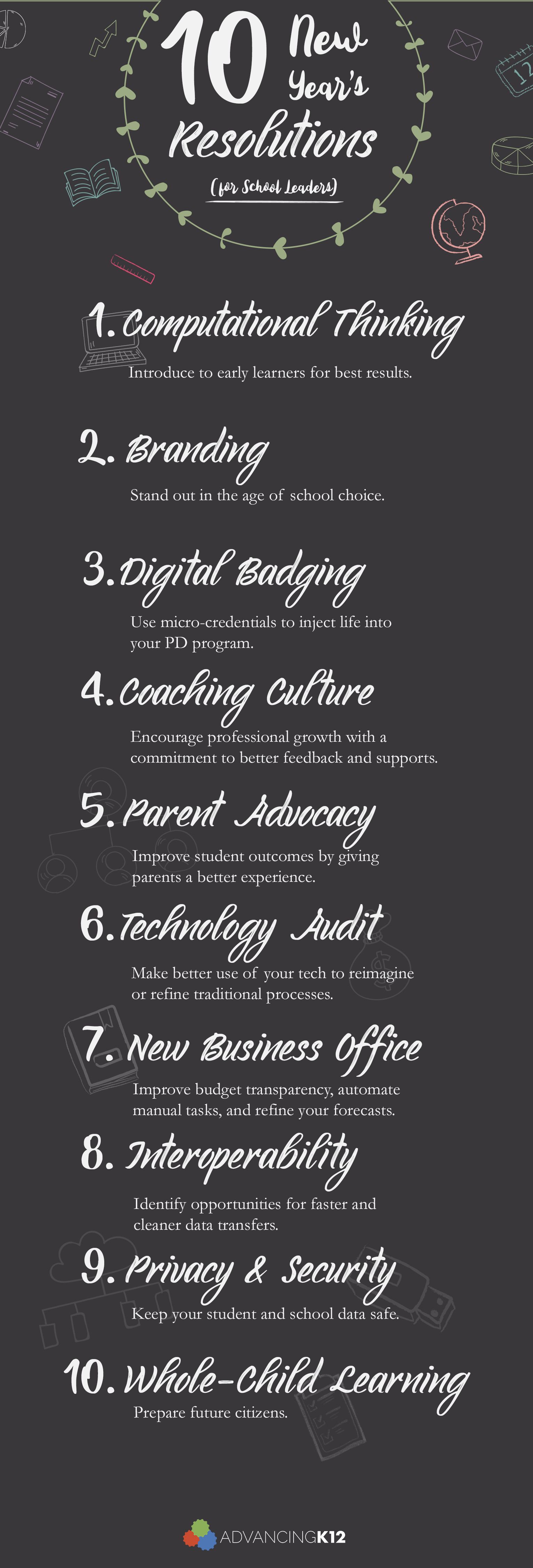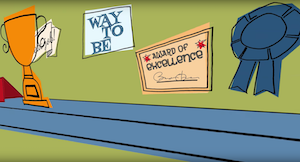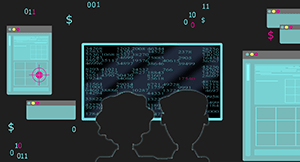
What are your goals for the new year?
If you’re like many school leaders, you’re looking forward to creating a better experience for students in your district. Here are 10 ideas to improve education in the coming year.
.png)
Introduce computational thinking in early grades
Computational thinking shapes kids’ brains for success in the digital age. Early childhood is the perfect time to calibrate minds to use problem-solving techniques like pattern recognition, decomposition, and how to embrace failures as a learning experience.Increasing diversity in the computer science workforce is a critical goal. When students are taught from a young age to embrace computer science, they begin to see themselves in related roles in the future. Best of all, these skills don’t only produce lots of tiny computer scientists—the strategies involved in computational thinking improve students’ mindsets for any career.
Further reading on this resolution:
- Why We Need Computational Thinking
- 5 Tech-Friendly ESSA Plans
- The Road to Connected Schools
- The Yin and Yang of Augmented Reality
.png)
Polish your school’s digital footprint
Does the idea of marketing sound intimidating? In the era of school choice (which isn’t going away anytime soon), marketing has become a higher priority for schools and districts everywhere. If you're not demonstrating value to prospective families and job candidates, who's to say they won't move on to the next option?What makes you different? Identify your "awesome" and tell your story. No need to start from scratch—draw on inspiration from other well-branded districts and find the approach best suited to your culture.
Further reading on this resolution:
- 8 Social Media Accounts to Learn From
- 8 Great Data-Sharing Districts
- EdTech Playbook: Twitter for Educators
- The Build Your Brand Challenge
- 10 Districts with Awesome Brands
.png)
Revamp PD with digital badging
Whether teachers are short on time, the district is short on budget, or both, a solution exists for effective, self-paced professional development designed to fit into busy schedules.Think of digital badging as DIY PD. Leadership teams decide what’s important in their district, and tailor training options accordingly. Teachers earn permanent microcredentials to validate their mastery of the topic at hand. Everyone works and learns at their own pace. And it can be far more cost effective than traditional methods.
Further reading on this resolution:
.png)
Refine teacher evaluation and create a coaching culture
Districts are facing teacher shortages. How can administrators keep great teachers in the classroom and identify the next crop of promising young professionals?- Take another look at evaluation programs. Do they help improve struggling teachers’ performance? Do they create an environment where everyone has the feedback and coaching they need to grow?
- Give special consideration to first-year teachers. Setting up peer coaching for rookie teachers is a great way to provide leadership experience for veteran teachers who’d prefer to stay close to the classroom.
- Don’t forget substitutes. How do they feel when they visit the district? Are they encouraged to contribute and grow as well?
- Finally, take a moment for introspection about the leadership team in your district. Is a healthy blend of styles and motivations represented?
- 10 Do’s and Don’ts for Effective Teacher Mentorship
- The Elusive Coaching Culture
- Challenge: Build a High-Performing Culture
- 4 Ways to Improve the Substitute Teaching Experience
- Introducing the EdLeader Personality Test
- Where is the Middle Leadership in Our Schools?
.png)
Improve parent experience and advocacy
It's difficult to keep parents closely connected with their kids’ progress—a Gallup poll showed only 20% of parents are fully engaged with their child’s school.A closer connection between conference sessions can have a notable impact on student outcomes. Teachers use parent portals to streamline communication and bridge the gap between school and home. Many portals provide mobile access to help reach the most families. Bonus: when parents feel connected, they’re more likely to advocate for the district and spread the word about how great their kids’ schools are.
Further reading about this resolution:
.png)
Audit and improve processes
How can technology streamline the processes you have in place? Is it working as well as it should? This resolution may tackle interoperability, data integration, and more.Scheduling is a great example of using technology to work smarter, not harder. When students can set their own schedules, the process becomes faster and more satisfying than ever. The right technology to facilitate flex mod scheduling or arena scheduling makes it all possible.
Further reading on this resolution:
- 5 Signs of a Tech-Friendly District
- Design Thinking for School Leaders
- EdTech Playbook: School Data
- 15 Advanced Metrics for Superintendents
- Beyond Email Challenge
- 4 Ways to Build a Better Schedule
- What is Arena Scheduling?
.png)
Secure funding, balance budgets, and pass a referendum
There are two parts to this challenge: Sharing the school business office’s story, and community outreach.Does everyone in the district understand the school business office’s role? Some storytelling and marketing may be needed. It’s valuable to visit buildings and get to know staff, students, and parents. At the same time, sharing information about how budgets are made helps demystify the school business office.
Next, reach beyond the district into the community to continue sharing your story (before someone else does). Is everyone on the same page, or at least invited to be? Make the process smoother by distributing budgets to the public in a readable format, explaining why expenditures are needed, and keeping everyone focused on the end goal—a great learning experience for every student.
Further reading on this resolution:
- 3 Ways to Improve Community Relations in Your District
- Improve Community Outreach in 4 Easy Steps
- The New Business Office Challenge
.png)
Be thoughtful about interoperability
Wouldn't it be great if all your technology played nice? The days of "proprietary" have given way to data standards, automation, and integration. In many cases, the ease with which data can be securely moved into and out of a system is now even more important than the granular functionality that system provides.Interoperability is one of the more daunting technology pursuits—even if you’re an IT pro, the landscape is changing almost every day. The first step is asking the right questions during RFPs and vendor meetings: less like “Do these two systems work together?” and more like, “Tell me about the specific APIs you have in place for third-party integrations.” Like any resolution, this one takes time to study and master.
For further reading on this resolution:
.png)
Revisit security
This resolution never really ends: revisiting security measures. Now’s the time to check up on training and give some reminders about common risks and defenses: malware, phishing, password hygiene, two-factor identification, and other best practices. Don’t forget about FERPA—make sure student data is only available to those who have a legitimate need to see it.Further reading on this resolution:
- Security Drill: 3 Threats to Watch For
- Is EdTech Ready for Multi-Factor Authentication?
- FERPA and Your Student Information System
- 3 Ways for Students to Steal Your Password
.png)
Look beyond pure academics
There’s more to life than reading, writing, and arithmetic. How do school leaders ensure their students are properly prepared to be future citizens, mastering the basics of humanity, critical thinking, and other life skills outside of academics? Strategies like project-based learning or apprenticeships can broaden the approach to learning and give students a taste of what they will experience after graduation. Other whole-child approaches include keeping an eye on social-emotional skills development and mental health initiatives.Further reading on this resolution:
- Top 10 Literacies in Education Today
- Weighing the Benefits of Project-Based Learning
- Wanted: Soft Skills for Tech Jobs
- Who is Responsible for Mental Health?
Harness the energy of the new year to gain momentum and create lasting improvement. Which topic inspires you most?

Follow-up resource: Subscribe
For more useful insight on K12 leadership, culture, and technology, enter your email in the footer below to receive the top Advancing K12 articles every month.WHAT'S NEXT FOR YOUR EDTECH? The right combo of tools & support retains staff and serves students better. We'd love to help. Visit skyward.com/get-started to learn more.

|
Erin Werra Blogger, Researcher, and Edvocate |
Erin Werra is a content writer and strategist at Skyward’s Advancing K12 blog. Her writing about K12 edtech, data, security, social-emotional learning, and leadership has appeared in THE Journal, District Administration, eSchool News, and more. She enjoys puzzling over details to make K12 edtech info accessible for all. Outside of edtech, she’s waxing poetic about motherhood, personality traits, and self-growth.




